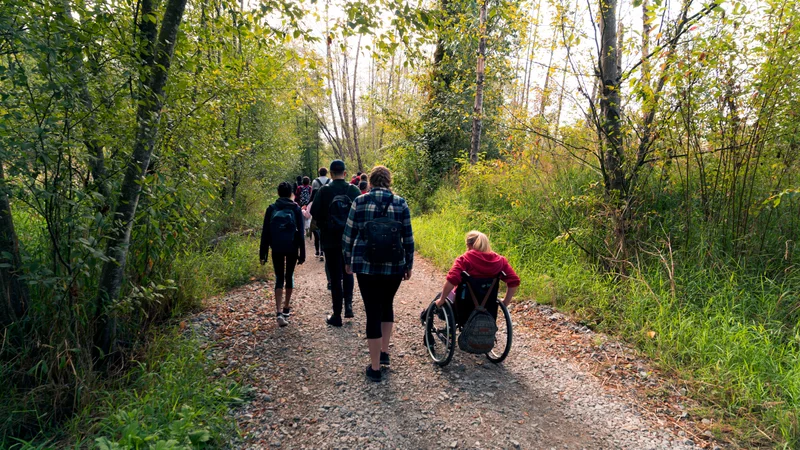The roots and paths of mental illness, addiction, and trauma are complex, interwoven, and surprising. Those seeking healing and recovery often find themselves exploring and coming to terms with underlying challenges, developmental issues, disabilities, and a wide range of related themes. It’s straightforward to think of addictions recovery in particular as a simple act of stopping — stopping using, stopping unhealthy lifestyles and behaviours — but recovery is just as much an act of starting, of reaching toward pathways of belonging, trust, and safety. And as we grapple with the underlying possibilities, it becomes clear that successful healing and recovery from these interwoven themes (addictions, mental illness, and trauma) must involve the engagement and development of a wide range of core skills: self-regulation, mindfulness, self-awareness, empathy, and many others.
Recent developments in the research of trauma, addiction, mental health challenges, chronic pain, and disability have shown that grappling with these challenges is most effective when we utilize psychological methods (the cultivation of self-awareness, insight, and empathy, for example) alongside the intentional practice of physical skills focused on mindful movement. Exercise practices, sport, physical training, and experiences in nature have all been shown to kick-start and dramatically improve resilience and neuroplasticity, which in turn is a signal of deep healing. When we work with the body we also change the brain and the nervous system; and when these all change together, lasting healing is the result.
These approaches are becoming widely adopted within a variety of fields focused on human growth and healing. In this workshop we’ll examine how these practices might be adapted to community and peer support programs and how we might start implementing them in our work with ourselves and others.
Curriculum
- What is addiction, what is trauma, and how are they related?
- What is the role of developmental themes in addiction and trauma?
- How are the layers of mental illness, trauma, and addiction interwoven?
- How might organizations implement interdisciplinary practices for peer support, trauma healing, and addiction recovery programs?
- What are the core elements involved in such initiatives?
- What are the risks and cautions involved in such projects, and how can these be managed?
- What are the central considerations in training staff to do this type of work?
Fees
The base fee for this workshop is $3500 plus GST (plus travel, if required). Social service organizations may qualify for a discount.






